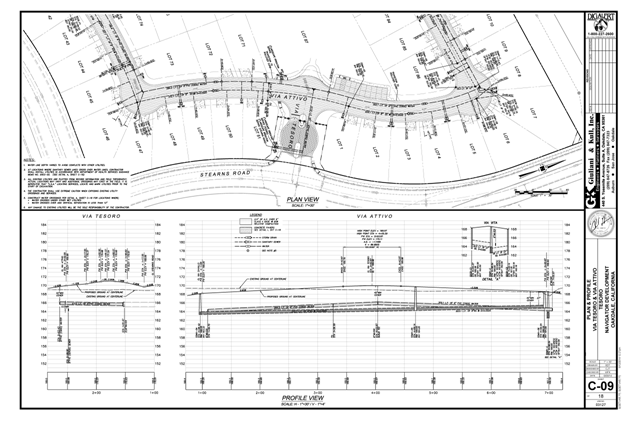What Is Civil Engineering?
Civil Engineering is the broadest of the engineering fields. It deals with the creation and improvement of the community, the protection of the environment, providing facilities for living, industry and transportation, including large buildings, roads, bridges, canals, railroad lines, airports, water-supply systems, dams, irrigation, harbors, docks, aqueducts, tunnels, and other engineered constructions.
Specifically, in the Waxahachie, TX and Ellis County area, civil engineers offer the following types of civil engineering services:
- Residential Land Development (single-family & multi-family land planning & subdivision design, lot layout planning, land development master planning, site utility plans, earthwork grading plans, and traffic circulation plans)
- Commercial Land Development & Design (Apartments, Hotels, Restaurants, Shopping Centers, Convenience Stores, Banks, Industrial Parks, and Churches)
- Sanitary Sewer System Layout & Design (Single family, multi-family & commercial)
- Storm Sewer Systems Layout & Design (detention ponds, gutters, storm drains & piping, FEMA Letters of Map Amendment, and storm water flood studies)
- Drinking Water System Planning & Design (wells, city water mains, fire prevention systems)
- Transportation Engineering (traffic studies, transportation system plans, urban planning, corridor studies, feasibility studies, and highway engineering)
 Roadway Design (horizontal curve design, superelevation design, route planning & design, vertical curve design, pavement design, curb layout & design, D.O.T. highway permits, road crossing permits, and road boring permits)
Roadway Design (horizontal curve design, superelevation design, route planning & design, vertical curve design, pavement design, curb layout & design, D.O.T. highway permits, road crossing permits, and road boring permits)- Pipeline Engineering (route planning, pipe sizing, corridor studies, feasibility studies, and easement and land acquisition)
- Construction Engineering (project management, construction management, construction plan design, quantity estimation & takeoffs, contractor selection, construction oversight, construction surveying, and as-built drawings)
- Environmental Engineering (Phase I Environmental Assessments, NPDES storm water permits, erosion & sediment control design plans, septic system design & approval, septic treatment system design, wetland delineation & surveying, Corps of Engineers permitting, and wetland mitigation plans)
- Geotechnical Engineering (foundation design, retaining wall design, soil proctor compaction testing, standard penetration testing, nuclear density testing, and Atterberg limits)
- Structural Engineering (retaining wall design, foundation design, slab design, building structural design & analysis, structural design plans, wall designs, roof designs, hurricane loading designs, and bridge design)
- Mechanical Engineering (heating, ventilation, and air conditioning, HVAC design, plumbing design, steam plants, humidifying/dehumidifying, water treatment & filtration systems, vacuum systems design, natural gas piping system design, medical & veterinarian gas systems)
- Electrical Engineering (Lighting design, building electrical design, fire alarm systems, generator system design & specification, security system design)
- Expert Witness Consulting & Testimony (expert reports, deposition testimony, and courtroom testimony)
The civil engineer must have a working knowledge of all of the above items, depending on the specialty chosen. Even a specialist must be able to understand how all of the different types of engineering fit together on various project.


Thoughts